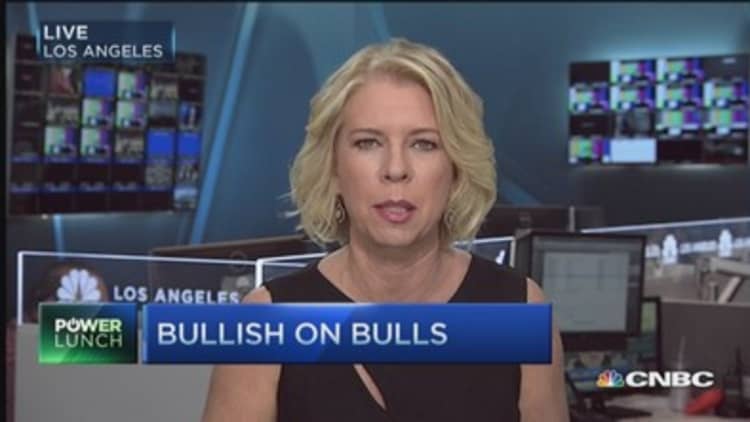A destructive insect's growing resistance to genetically modified corn seeds is costing American farmers as much as $2 billion annually, and now U.S. regulators may weigh in on the matter with moves that could affect both farmers and corporate agriculture giants such as Monsanto.
The western corn rootworm appears to have evolved to eat the corn that was bioengineered to defeat it. That has led the U.S. Environmental Protection Agency to consider limits to continuous corn planting—experts say the practice of planting corn for three or more years in the same field has helped rootworms build up resistance.
"The GMO crops are available, and they've done a great job for a long time, but now we have a very formidable adversary with the western corn rootworm," said Brad Howe, a corn grower who farms in Gilman, Illinois, near where some rootworm resistance problems have been found. "They seem to be a pest that is able to constantly adapt to its environment and continue to change. So we've been fighting it and fighting it."
Read More
According to the EPA, the government is considering a "proposed framework intended to delay the corn rootworm pest becoming resistant to corn genetically engineered to produce Bt pesticides." Bt refers to Bacillus thuringiensis, a soil-dwelling bacteria that is used as a biological pesticide.
Public comments for the proposal are due on Monday of next week.
"On balance, we see little risk for Monsanto in the EPA's proposal, a low probability that the EPA will take more decisive action, and little change to the way farmers grow corn," said CLSA analyst Mark Connelly in a research note. "In a worst-case scenario, the hit to corn sales would be largely mitigated by higher sales elsewhere, and in other crops."

Monsanto's corn seed business has accounted for about half of its consolidated annual gross profits. Citi Research recently indicated that Monsanto's corn seed is gaining share, citing a survey of farmers in the Corn Belt.
The western corn rootworm has been around in the Corn Belt for decades but the voracious bugs started gaining resistance in the past several years to several varieties of engineered corn that utilize insect-specific toxin proteins, experts say. Rotating intermittently from corn to soybeans usually gets rid of the problem, but not always.
Read MoreFrankenstates: Winning the agriculture tech war
"Nobody understands how widespread it is," said Bruce Hibbard, a research entomologist at the U.S. Department of Agriculture. "For most of the United States, rotation of crops is the best and most simple solution. But there is an area in east central Illinois and western Indiana where the western corn rootworm has also evolved resistance to crop rotation."
The EPA's proposed framework to fight corn rootworm resistance is to require crop rotation as well as the use of corn varieties containing more than one Bt toxin. The agency cited recent reports that have documented corn rootworm resistance to two Bt traits in the Corn Belt. Plantings of Bt corn varieties reached 80 percent of U.S. corn acreage in 2014, up from 29 percent in 2003, according to the USDA.
"Nothing is a silver bullet and completely 100 percent protected," said Tom Eickhoff, agronomic systems lead at Monsanto. "We never want to rely completely on one method to control insects and strongly encourage farmers to use multiple techniques for managing insects on their farm."
Things are very tight this year for the extra added cost of the seed and fertilizers.Brad Howecorn producer
Monsanto's Genuity SmartStax seed product, licensed from the Dow AgroSciences unit of Dow Chemical, utilizes a bug-killing technology with multiple Bt traits. A conventional bag of corn seed today runs around $160 a bag, while the SmartStax product is running at roughly $320 a bag, according to farmer Howe.
"You're paying a premium for the multiple traits and multiple modes of action for both above- and below-the-ground pests," he said. "Things are very tight this year for the extra added cost of the seed and fertilizers."
Meanwhile, Indiana corn farmer Brian Scott said he's backed off buying the Bt corn over the last few years, because he's not in an area directly affected by the western rootworm.
"I'm not super scared about it," he said. "There are ways to manage it. We actually saved money backing off buying the Bt corn rootworm traits."


